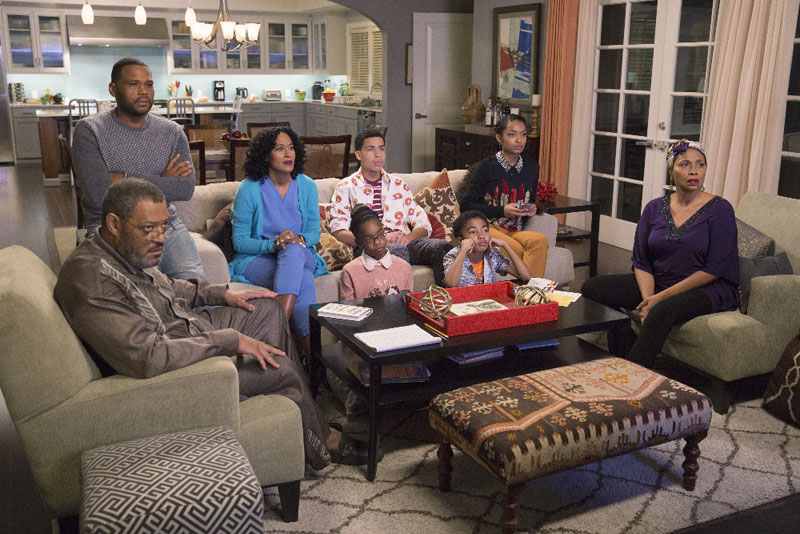I Like to Watch
The Oscars may be so white, but TV is all Grey's
By Jacob Clifton, 12:30PM, Fri. Feb. 26, 2016
At the end of March 2005, I'd been writing about TV for a while and I knew the communities it could create. The passion, the longing, and the fighting – the whole world of it – was fascinating, because stories are inherently fascinating: lies that say things that are truer than facts.
Both television and God are, I think, best explained as variations of Siri – something that's for everybody but also, somehow, specifically for you. I knew television could make you feel like that: A stranger tells you their secrets, and now you're both less alone.
We get attached to stories we know will end before we've learned everybody's names, and we talk about those shows, decades later. At the end of March 2005, there was one show I fell so immediately and personally and specifically in love with that I got scared about its cancellation before the pilot was finished airing: Grey's Anatomy.
To me, it was about a young woman watching herself make mistakes in spite of her intellect, trying to fuse the jagged, sweaty edges of herself into something approximating a human being. Not particularly likable – none of them were; they were clever – and determined to barrel into rooms like a grenade and cause total chaos and somehow protect everyone at the same time. It was about people so used to being spoken over that whenever they did get silence, they filled it with shouting.
"Plus it's so diverse," I would tell my other white friends. "You think it's about sex and scandals but really it's this vision where the authority figures are all impatient and black and stand on their feet and everybody listens when they talk, and whenever the white people do something stupid they are informed about it, not by a helpful black sidekick or gay best friend, but by the people who professionally know more, who have more experience, who have earned their gravitas."
I said this as a sales tactic, to save my show. I used it, the way we do when we're talking to white people, to prove we're both virtuous and concerned about the issues of the day. But I was there for stupid, horrible, crazy Meredith and her even bigger trainwreck of a compatriot, underwear model Izzy, who stood outside the hospital for two days without moving, unable to ask for her job back, unable to think, or choose anything one way or the other. I saw myself in them.
The show was a runaway success, of course. Even 12 years later, you hear people say, "That show's still on?" and you nod, smugly knowing it's still killing in primetime. Of course, today it's been joined by other shows – Scandal and How to Get Away With Murder, two more dramas from Grey's architect Shonda Rhimes' production company ShondaLand; the truly excellent black-ish and the truly hilarious Fresh off the Boat, to name two more – that demonstrate exactly why: It wasn't just me that show was talking to.
That show was talking expressly to people who were not used to seeing themselves on television at all, and certainly not in positions of authority, wisdom, unquestioned knowledge, type-A surgeons all dealing with the invisible aggressions and obstructions that could pass the rest of us right by, on the way to making fun of Katherine Heigl. It blew the doors off primetime not just in terms of ratings but in terms of storytelling. So of course, in 2005, the executives said: What we need is more shows about … doctors.
Right around cyberpunk times – early Nineties – there was a vogue for "global" sci-fi. Exotic locations, characters of various races. Most writers did it for the sake of doing it, following the trend, like the formerly cryptofascist hatemonger Orson Scott Card. You hear a phrase in minority communities still, "About us without us," that speaks to this persistent move: Cosmetic diversity posing as real diversity, even when it's still just white people talking to (and paying) other white people. You see it in Ryan Murphy's ongoing obsession with race and gender, the two things he should never, ever write about. You see it in "color-blind" casting that never makes any sense and rings the bell louder than if you'd let it lie. You see it in the Oscars a great deal; you'll see plenty of it on Sunday night.
So why are the Oscars so white, and television so rich? So good, and so open to possibility? How has television learned to pay attention so nimbly, when film is still so far behind? Because it's about access. It's about the people behind the cameras. Mindy Kaling talks about being a "diversity hire" meant that NBC paid her salary her first year as a writer for The Office. If that were a shame, she wouldn't have come back at full salary the next year. It's not tokenism if you are digging underneath the static fuzz – of who you know and what you expect – and go looking for the raw talent everybody missed. That's just due diligence. That's action that affirms.
Because the thing that sets the work apart, when the people behind the camera are beyond the default, when their voices are included, isn't just about a bigger audience, or shows about doctors: These shows are better because they are told by those of us who never had to discern what was specific about them from what makes them people; who already know that, for example, a white person is white maybe a few times a week, but a black person is black pretty much all the time.
Not always a fun leap to make. But it gives you the gift of seeing exactly where your experience touches that of other people's. You can see the gap you've leapt across. You can shout into that space a story: A lie that tells the truth, better than any fact; universal. And if you are very lucky, you get to call the rest of us across, and say, "Come home."
A note to readers: Bold and uncensored, The Austin Chronicle has been Austin’s independent news source for over 40 years, expressing the community’s political and environmental concerns and supporting its active cultural scene. Now more than ever, we need your support to continue supplying Austin with independent, free press. If real news is important to you, please consider making a donation of $5, $10 or whatever you can afford, to help keep our journalism on stands.
Josh Kupecki, March 2, 2018
Neha Aziz, March 1, 2014
Sept. 30, 2016
Sept. 16, 2016
Academy Awards, Oscars, Grey's Anatomy













